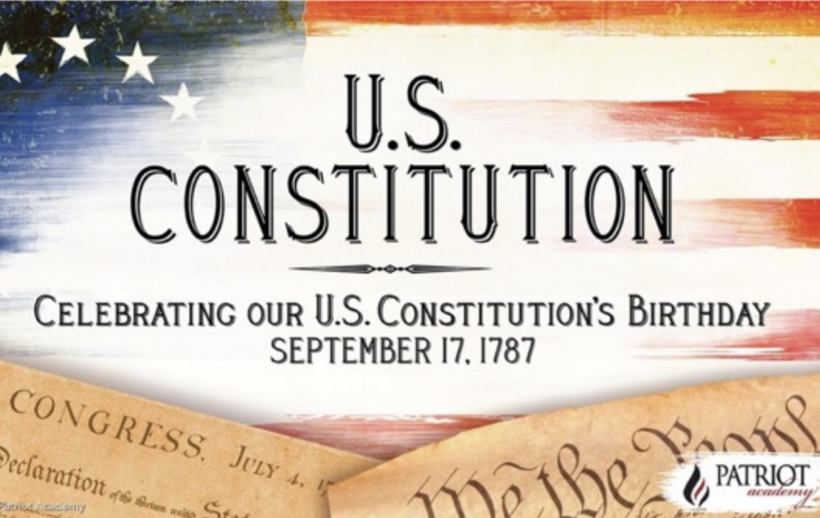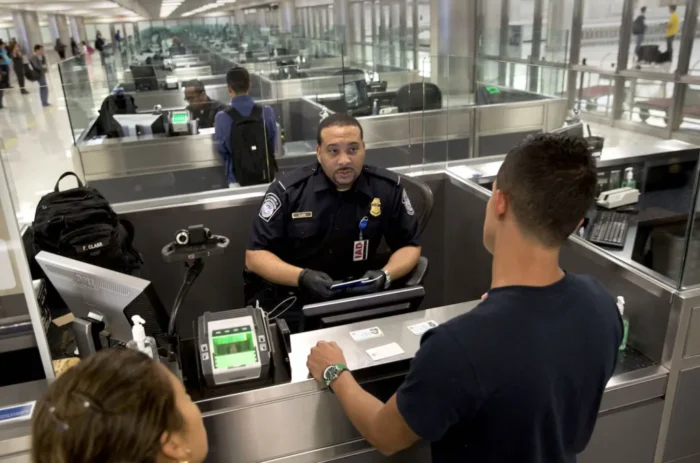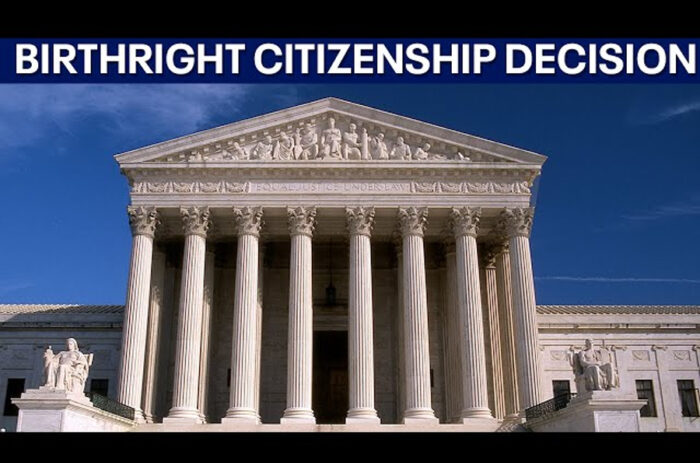
print Print...
Constitution Day commemorates the formation and signing of the U.S. Constitution by thirty-nine brave men on September 17, 1787.
On September 17, 1787, the Founding Fathers signed the U.S. Constitution. For over 200 years, the Constitution has served as the supreme law of the land. The Constitution, along with the Bill of Rights and other amendments, define our government and guarantee our rights. Each year, on September 17, Americans celebrate Constitution Day and Citizenship Day. In addition, September 17-23 is also recognized as Constitution Week.
A federal law enacted in December 2004 designates September 17 as “Constitution and Citizenship Day,” to commemorate the signing of the U.S. Constitution on September 17, 1787. The law contains the following provision:
“Each educational institution that receives Federal funds in the fiscal year shall hold an educational program on the U.S. Constitution on September 17 of such year for the students served by the educational institution.”
Mark Alexander writes in a commentary at PatriotPost:
“No matter what our calling, our occupation or our passion, we have a debt and duty as citizens to both learn about and support our Constitution, and we are obliged to do so above and before all other pursuits, for without constitutional Rule of Law, there are no other pursuits.”
GEORGE WASHINGTON AND THE CONSTITUTION:
- In 2012, George Washington’s personal copy of the Constitution, in which he had written notes, sold at auction for $9.8 million.
- The Mt. Vernon Ladies Association bought it.
- It allowed us to see, for the first time, how cautiously our first president assumed the office, his eyes not toward history but the future.
- Next to two passages explicating the signing of a bill into law, which he bracketed, Washington has written in cursive, “President.”
- He also inscribed “Presidential Powers” next to the paragraphs that lay out the president’s role as commander-in-chief, as well as his authority to grant pardons, make treaties and appoint Supreme Court justices.
- Beneath that, in the paragraph that reads, “He shall from time to time give Congress information of the state of the union,” Washington has added “required,” and it was he who established the address as an annual event.
Read brief biographies of the “Framers of the Constitution” (the Founding Fathers) at archives.gov.
Compiled from sources including National Archives, Mt. Vernon, Patriot Post ,etc.
Questions
1. On what date was the U.S. Constitution signed?
2. How many delegates signed the Constitution?
3. a) What does the 2004 federal law require every educational institution that receives Federal funds to do?
b) Why is this law necessary?
4. What does your school do on Constitution Day?
5. a) Write out the words to the Preamble to the Constitution.
b) Memorize the Preamble.
6. Read the Constitution in its entirety. (See Archives.gov)
a) How many articles are there in the Constitution?
b) Which Article lays out the powers of Congress? of the President? of the judiciary?
7. Take one (or all:) of the quizzes below. How many answers did you know?
Quizzes on the U.S. Constitution:
- A short answer quiz from Wallbuilders: How much do you know about the Constitution?
- 10 question multiple choice questions on the U.S. Constitution. from ConstitutionFacts .com.
- An advanced quiz (50 questions, multiple choice) from ConstitutionFacts .com.
- Special Constitution quiz from StudentNewsDaily. (10 multiple choice)
- Special quiz for Constitution Day from StudentNewsDaily. (20 multiple choice)
- A quiz on the Amendments from the 2019 Constitution Day post at StudentNewsDaily. (20 multiple choice)
Resources
Wallbuilders’ Celebrating the Constitution.
Wallbuilders’ Constitution Hub.
Free 10 part video course “Constitution 101: The Meaning and History of the Constitution”
The National Constitution Center’s “Constitution 101 Course”
Read “How a college term paper led to a constitutional amendment” at studentnewsdaily.com.
Regarding the Constitution, there are two types of judges: activist and constitutionalist:
- Judicial activism (activist judge) is “the act of replacing an impartial interpretation of existing law with the judge’s personal feelings about what the law should be” (wikipedia)
- A constitutionalist “refers to those who advocate strict adherence to the intentions of the framers of the U.S. Constitution” (wikipedia)
Liberals generally support the nomination of activist judges and conservatives generally support the nomination of constitutionalist judges. Read the text of a speech given by the late Supreme Court Justice Antonin Scalia, a constitutionalist:
Constitutional Interpretation the Old Fashioned Way.
Daily “Answers” emails are provided for Daily News Articles, Tuesday’s World Events and Friday’s News Quiz.



